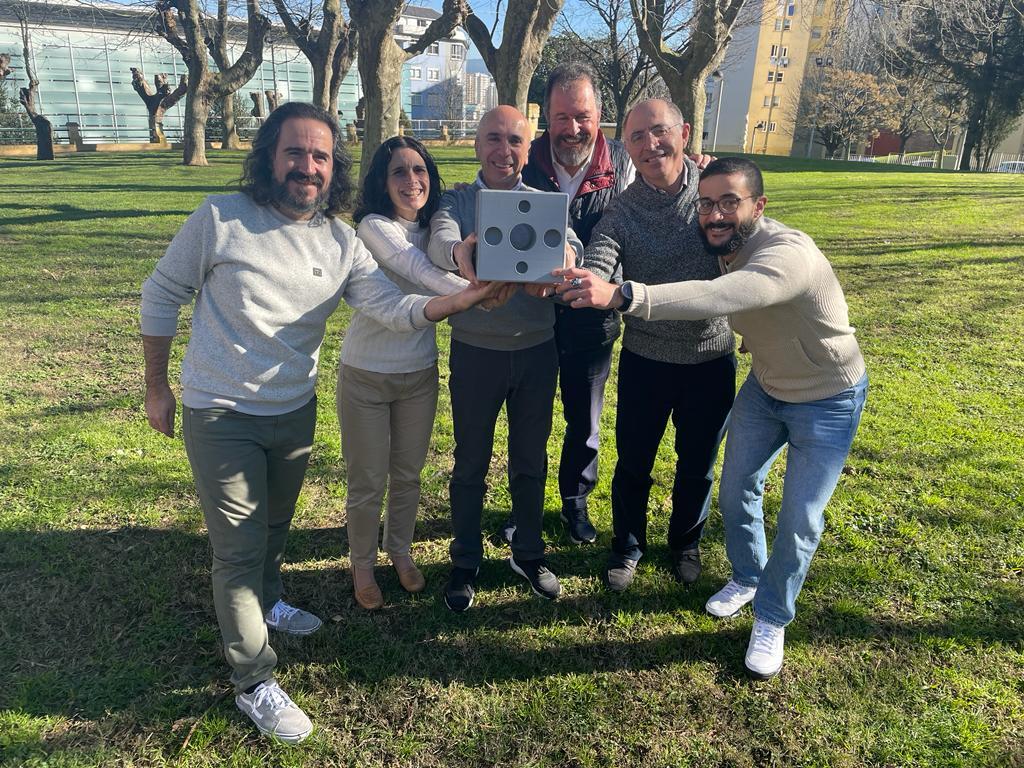
CITENI and CITIC researchers create reefs using scallop shells sourced from Michelin-starred restaurants
- The team from the Centro de Investigación en Tecnologías Navales e Industriales (CITENI) and the Centro de Investigación en Tecnologías de la Información y las Comunicaciones (CITIC) at the Universidade da Coruña (UDC) has published a pioneering study in the International Journal of Gastronomy and Food Science (JGFC), by Elsevier, in collaboration with the Basque Culinary Center. The research analyses the reuse of scallop shells from Michelin-starred restaurants for the construction of sustainable artificial reefs
Ferrol, 16 October 2025.- A team of researchers from the Centro de Investigación en Tecnologías Navales e Industriales (CITENI), based at the Ferrol Industrial Campus of the Universidade da Coruña (UDC), and from the Centro de Investigación en Tecnologías de la Información y las Comunicaciones (CITIC), has conducted groundbreaking research linking Galician haute cuisine with marine ecosystem restoration. The study explores the reuse of bivalve shells from Michelin-starred restaurants as a sustainable material for building artificial reefs.
The paper, entitled “Valorisation of gourmet shellfish waste for sustainable artificial reef construction”, was published in the International Journal of Gastronomy and Food Science (Elsevier, 2025), a prestigious scientific gastronomy journal edited by Elsevier in collaboration with the Basque Culinary Center.
The study was carried out by Luis Carral, M. Isabel Lamas, José Luis Mier, Juan José Cartelle, Carlos Álvarez, and Javier Tarrío, researchers at the UDC belonging to the GEM, MARES and MODES groups within CITENI and CITIC.
From haute cuisine to marine regeneration
The research addresses a contemporary challenge: how to connect gastronomic innovation with marine sustainability. In Galicia, the scallop (Pecten maximus), the variegated scallop (Chlamys varia), and the queen scallop (Aequipecten opercularis) are emblematic species featured prominently on the menus of Michelin-starred restaurants. However, their consumption generates large amounts of shells that, in most cases, end up as waste.
The CITENI team demonstrated that these shell residues can be reused as components of eco-concretes, substituting up to 20% of conventional coarse aggregate without affecting material strength. Physicochemical tests confirmed that all species exhibit a composition rich in calcite (CaCO₃), although scallop shells from the Ría de Arousa delivered the best balance between mechanical strength, chemical stability, and sustainability. They are therefore the most suitable material for developing sustainable artificial reefs which, over time, will become habitats for bivalves and fish, contributing to the regeneration of coastal ecosystems.
The study also quantifies the magnitude of the available resource: Michelin-starred restaurants in Galicia consume approximately 20,400 kg of scallops per year, representing around 12% of the region’s total production (170,714 kg). This volume ensures a stable flow of shells that could become a strategic resource for marine regeneration.
An alliance between Galician science and gastronomy
The project benefits from the collaboration of chef Javier Olleros, from the two-Michelin-starred restaurant Culler de Pau (O Grove), one of Spain’s leading advocates of sustainable cuisine. He remarks, “In our kitchen, especially one that dialogues with the sea, we work with what it offers us, but we must also think about how to give something back. Giving scallop shells a second life and turning them into reefs is a beautiful and coherent way to close the loop between nature, science, and cuisine.”
Meanwhile, Luis Carral, researcher at CITENI, highlights that “this work opens a new pathway for the valorisation of marine waste, combining engineering, sustainability, and gastronomy. From the Ferrol Industrial Campus, we demonstrate that technological innovation can have a direct and positive impact on both the marine environment and Galician society.”
A Galician model with international reach
Publication in the International Journal of Gastronomy and Food Science consolidates the visibility of the Ferrol Industrial Campus and the UDC in research applied to the marine environment, positioning Galicia as an international benchmark in sustainable innovation, blue economy, and scientific gastronomy.
The study offers a replicable model that contributes to ecosystem restoration, waste reduction, and the promotion of a circular economy based on the valorisation of food waste.





